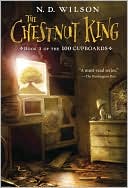In Jane Eyre, Charlotte Bronte spins a web of trial, self-denial, respect, and the need for true love.
This review contains spoilers. Go read the book first, if you’re going to! And my general rule with classics is to see the movie AFTER the book, if at all. Often after reading a classic I decide it was so good I’m not going to ruin it with a Hollywood rendition, anyway.
Anyway, the main theme here is maintaining one’s dignity by insisting upon just treatment for one’s station. The strong can exploit orphans, governesses, and women who need to marry, and often do. How should the weak respond? Jane Eyre shows us how. She works within the system to bring dignity and respect to others wherever she can, insisting upon the same for herself when others ask too much of her. She does this without being a railing modern-day feminist, making a scene over it, but she rightly rejects those who take advantage of or degrade her.
Such sins are atoned for, in some cases – not in others. Jane is willing to sit with the very aunt who despised her, at her deathbed. Rochester is purified through fire, but not without the partial loss of hand and eye (Matthew 5:29-30). Brocklehurst, the hypocritical orphanage superintendent, is never heard from again, though. What I appreciate about this is what we have lost in modern life: the ability to reject the wrongs found in religion without rejecting the religion outright. Yes, St. John was a jerk for what he expected of Jane in God’s name. But Jane still knew God expected certain things of her. Her years of self-denial before this encounter made her rejection of him perfectly legitimate.
So we see that institutional exploitation is not the final word. Personal exertion and self-denial can give the strength to resist further exploitation, where that denial is directed by God’s law.
Jane Eyre affirms the twin marital virtues of loving affection in the marriage relationship, and the outward boundaries that protect it (one man, one woman, till death do you part). To violate either strikes at the heart of marriage. She refuses to be Mr. Rochester’s mistress or second wife, outside the God-ordained bounds of the institution of marriage. She refuses to be St. John’s work-horse, missionary wife within those bounds, where love and affection are lacking. Blanche Ingraham could have married Mr Rochester and both would have benefitted materially, but affection and an intellectual matching was lacking.
This novel depicts the maturing of a girl in hardship, into a young woman still vulnerable but aware of what she seeks, and finally a woman who can be a true helper to a loving husband. Our revolutionary world wants to remove all hardship from our children, and give young people what they want now without any denial needed. But what we need is to count it all joy when we fall into various trials, knowing that they produce patience and maturity (James 1:2-4).
 Ink on His Fingers by Louise A. Vernon
Ink on His Fingers by Louise A. Vernon



